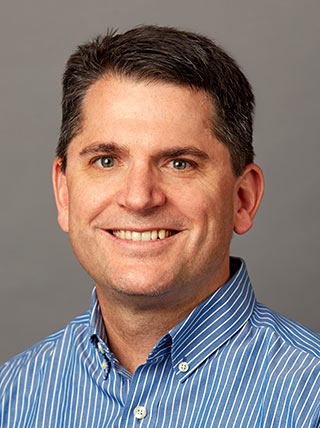Preventing a Rare But Tragic Outcome: Post-Tonsillectomy Death in Children
Stories - Dec 13 2016

CHR researchers collaborated with Northwest Permanente physicians to reduce opioid prescriptions for children having tonsillectomies.
When three children died several years ago after receiving opioid medications to manage their pain from having their tonsils removed, officials at the U.S. Food and Drug Administration knew they had to act. In 2013, the FDA required that a “black box warning”—the strictest type of warning issued by the agency—be added to the labels of drugs containing codeine. The warning advised physicians not to give narcotic pain medications to children following tonsillectomies.
Despite the clear wording of the black box warning, Northwest Permanente otolaryngologist Anna Grosz, MD, says many surgeons across the country continue to prescribe these narcotics after tonsillectomies. To keep that from happening at Northwest Permanente, Dr. Grosz partnered with David Mosen, PhD, MPH, Senior Program Evaluation Consultant at the Center for Health Research. Together, they studied an intervention that made it easier for physicians to prescribe safer medications. In this interview, Dr. Grosz and Dr. Mosen talk about their partnership and what they learned.
Why do doctors continue to prescribe narcotics even with the safety concerns?
 Anna Grosz, MD
Anna Grosz, MDDr. Grosz: When I heard about the FDA warning, I felt strongly that we needed to stop prescribing these medications to kids after tonsillectomies. But as doctors, we usually want to see the evidence before we make a change. I found a couple of studies where doctors had had success using non-narcotic pain medications after these surgeries, so I approached the other 15 surgeons in my department to see if they were willing to make this change.
A few of my fellow surgeons were concerned that the non-narcotic medicines wouldn’t be strong enough to control the pain; others were worried that the non-narcotic pain medications carried a higher risk of bleeding. I suggested that we try out them out to see what happened. The surgeons agreed, but I knew that asking them to make a change wasn’t enough. We needed to make it easier to prescribe non-narcotic medications, so we added a new prompt in the electronic medication system that automatically defaulted to non-narcotics for children who’d had a tonsillectomy. If surgeons wanted to prescribe narcotics they still could, but they had to override the automatic default.
How was the research center involved?
 David Mosen, PhD, MPH
David Mosen, PhD, MPHDr. Mosen: Dr. Grosz had proposed a solution for her problem, but she came to us because she had no way to know if the solution was actually working. She wanted to know if prescriptions for narcotics decreased after the automatic ordering default went into effect, so we designed a study that would answer that question as well as questions about whether or not the non-narcotic medications controlled the kids’ pain and whether there were more side effects with these medications. We pulled information from patients’ electronic medical records and conducted a statistical analysis comparing the 18-month period before the automatic default went into effect with the 18-month period after the default went into effect.
What did you find?
Dr. Mosen: Prescriptions for narcotics after children’s tonsillectomies fell from 82 percent to 15 percent. There were no differences in bleeding, and in most cases, the kids’ pain was well-controlled with non-narcotic medications. A nurse called parents within a week of surgery to ask about pain, bleeding, dehydration, sleep and other problems. If the child’s pain wasn’t controlled with the non-narcotic medication, surgeons could order a narcotic, but the data showed that this happened in only 11 percent of the cases. Some surgeons did prescribe narcotics to children right after surgery, but this happened in only 4 percent of the cases.
What non-narcotic pain medications do you prescribe for children having tonsillectomies?
Dr. Grosz: We prescribe ibuprofen and acetaminophen alternating every three hours. These medications are safer for kids, and in many cases they actually work better. If you give your child a narcotic, it’s a respiratory depressant. If the child has already had anesthesia, this is a double whammy to their respiratory system. Many kids complain about anxiety after receiving narcotics. There are so many reasons to avoid giving narcotics to kids.
If that’s the case, why does this warning apply only to tonsillectomies?
Dr. Grosz: The black box warning applies only to this surgery for children, but we have also cut back on narcotic use in other surgeries. I do a lot of ear surgery in kids and adults, and in most of those surgeries I start out by prescribing non-narcotic pain medications. That’s usually enough to control the pain. I have colleagues who have switched to mostly non-narcotic pain medications after sinus surgery. Of course, there are many surgeries where patients need narcotics for pain control. One example is adult tonsillectomies. Adults take longer to recover and they complain of more pain when having their tonsils out, so we prescribe narcotic pain medications for them.
How have parents reacted to the change?
Dr. Grosz: For the most part, parents are happy that their kids are not receiving opioid narcotics. When we explain that ibuprofen and acetaminophen control the pain in most kids, they are willing to try these medications first before getting a prescription for codeine. We still write prescriptions for the ibuprofen and acetaminophen because many parents feel better if they have a prescription, but they could also get these medications from the drugstore without a prescription.
What’s the next step?
Dr. Mosen: We have the evidence that this new protocol works, and we’ve published our findings in the journal Otolaryngology—Head and Neck Surgery. Now we’re working with several Kaiser Permanente regions to implement the protocol throughout our system and to develop an evaluation plan to assess the effectiveness of the new protocol in other regions.